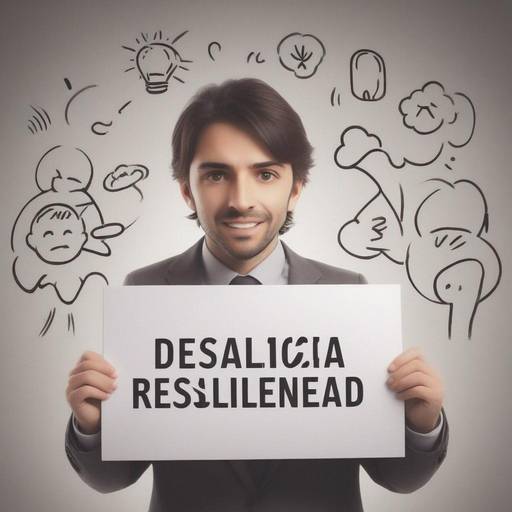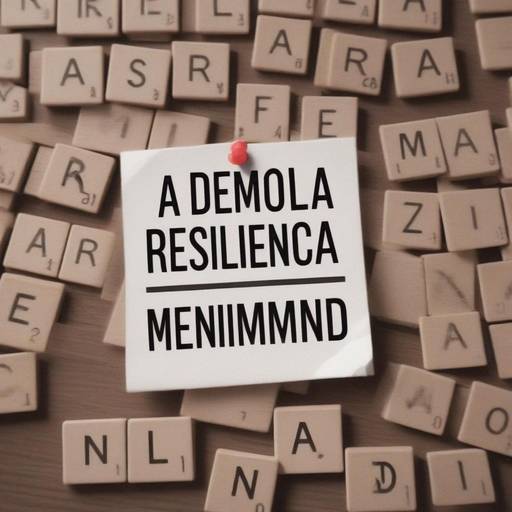
In today's society, we face constant challenges that can affect our mental well-being. Resilience, the ability to overcome adversities and stay strong in difficult times, is critical to addressing these situations. An effective tool to develop this skill is the practice of mindfulness, a millenary technique that has demonstrated significant benefits for mental health. In this article, we will explore in detail how mindfulness can be an invaluable resource to strengthen resilience and promote emotional well-being.
Introduction
The term mindfulness, derived from the Buddhist tradition, refers to the ability to consciously and without judgment to pay attention to the experience of the present moment. This practice has gained popularity in the Western world due to its effectiveness in reducing stress, improving concentration and promoting inner calm. On the other hand, resilience is defined as the ability to adapt positively to adverse situations. Integrating mindfulness into our everyday life can be a powerful strategy to foster this skill.
History and Background
Mindfulness has its roots in the ancient teachings of Buddhism, specifically in Vipassana meditation, which means "seeing things as they are." The practice has been transmitted over the centuries, reaching west through prominent figures such as Thich Nhat Hanh and Jon Kabat-Zinn, who adapted the traditional teachings to make them accessible to a wider audience. Over the years, mindfulness has evolved to integrate into various disciplines, including psychology and medicine, as an effective therapeutic tool.
Detailed Analysis
The mindfulness offers a wide range of mental health benefits. Many studies have demonstrated their effectiveness in reducing stress, anxiety and depression. By fostering full attention, mindfulness allows people to cultivate a greater awareness of their thoughts and emotions, which in turn provides them with greater ability to regulate their inner state. This ability is fundamental to face more resilient challenges and traumas.
Comprehensive review
The application of mindfulness in the therapeutic and educational field has proved to be highly effective. Mental health professionals, educators and business leaders have incorporated mindfulness-based strategies to help people develop resilience and emotional well-being. This practice has become a valuable resource for managing labour stress, preventing emotional exhaustion and promoting a healthy working environment.
Comparative analysis
By comparing mindfulness with resilience, it is evident that there is a significant intersection between both. While mindfulness provides tools to cultivate consciousness and acceptance, resilience provides the inner strength to overcome challenges. By integrating mindfulness into resilience development, a holistic approach is created that addresses both the acceptance of present experience and the ability to adapt positively to it.
Practical Tips and Accessible Recommendations
If you seek to strengthen your resilience through mindfulness, consider incorporating daily practices such as meditation, full attention during daily activities and conscious self-care. Establishing mindfulness routines can help you cultivate a solid foundation to face challenges with greater clarity and inner calm.
Conclusions and FAQs
In short, mindfulness can be an invaluable ally for the development of resilience and emotional well-being. By practicing full attention, we can cultivate the ability to face difficulties with greater emotional balance and mental clarity. Then we will answer some frequent questions related to mindfulness, resilience and mental well-being.
Frequently asked questions
- How does mindfulness influence the ability to face life challenges? Mindfulness strengthens the ability to face challenges by cultivating consciousness and acceptance. Being fully present at the moment, we can develop a more balanced perspective and a greater ability to regulate our emotions, which in turn helps us to face the challenges more calmly and clearly.
- Is the mindfulness right for everyone? Mindfulness may benefit most people, but it is important to note that some people can find the practice initially challenging. If you experience difficulties, consider seeking guidance from a qualified instructor to adapt the practice to your individual needs.
- How can mindfulness be integrated into working environments? Mindfulness in the workplace has proven to be effective in reducing stress and fostering a healthier working climate. Organizations can incorporate mindfulness practices by implementing welfare programs, guided meditation sessions, or creating calm spaces for rest and reflection.
- What is the relationship between mindfulness and emotional resilience? Mindfulness and emotional resilience are closely related, as the cultivation of full attention can strengthen the ability to adapt positively to difficulties and remain emotionally balanced. Being fully present at the moment, we can develop a greater capacity to regulate our emotions, which in turn promotes resilience.
- Can mindfulness help in managing emotional disorders? Mindfulness has proven to be beneficial in managing emotional disorders such as anxiety, depression and post-traumatic stress. By cultivating consciousness and acceptance, people can develop strategies to regulate their emotions and respond more adaptively to emotional difficulties.
- What practical recommendations can help incorporate mindfulness into everyday life? To integrate mindfulness into everyday life, consider booking a few minutes each day for meditation, practicing full attention during daily activities such as eating or walking, and looking for moments of tranquility to connect with yourself. Consistency in practice is critical to experiencing its long-term benefits.
In short, mindfulness offers a powerful tool to strengthen resilience and promote emotional well-being. By cultivating full attention, we can develop the capacity to address challenges with greater calm and mental clarity, leading to greater emotional resilience and overall well-being. If you are looking to strengthen your resilience and promote your mental health, consider integrating mindfulness as a regular practice in your daily life.






















































